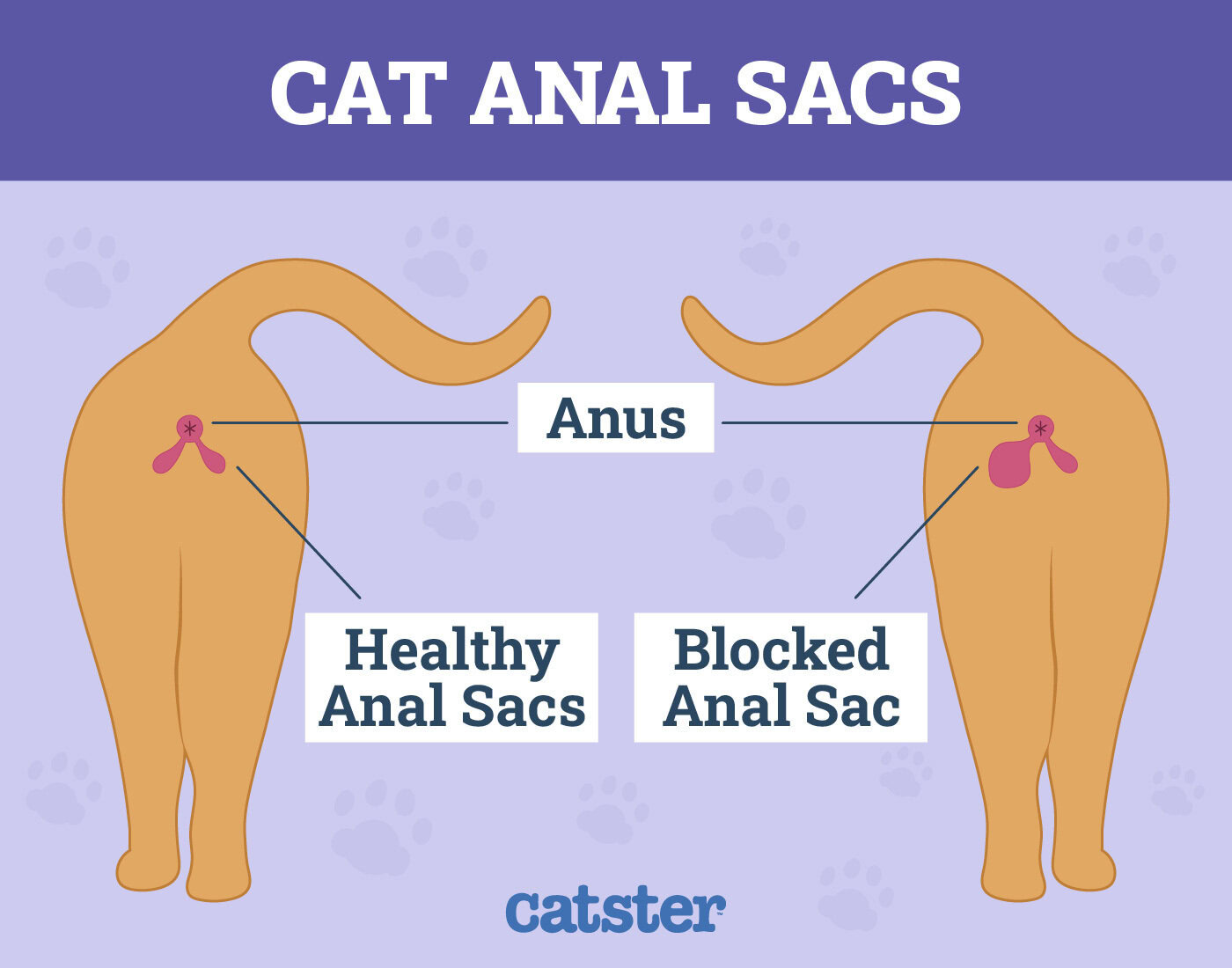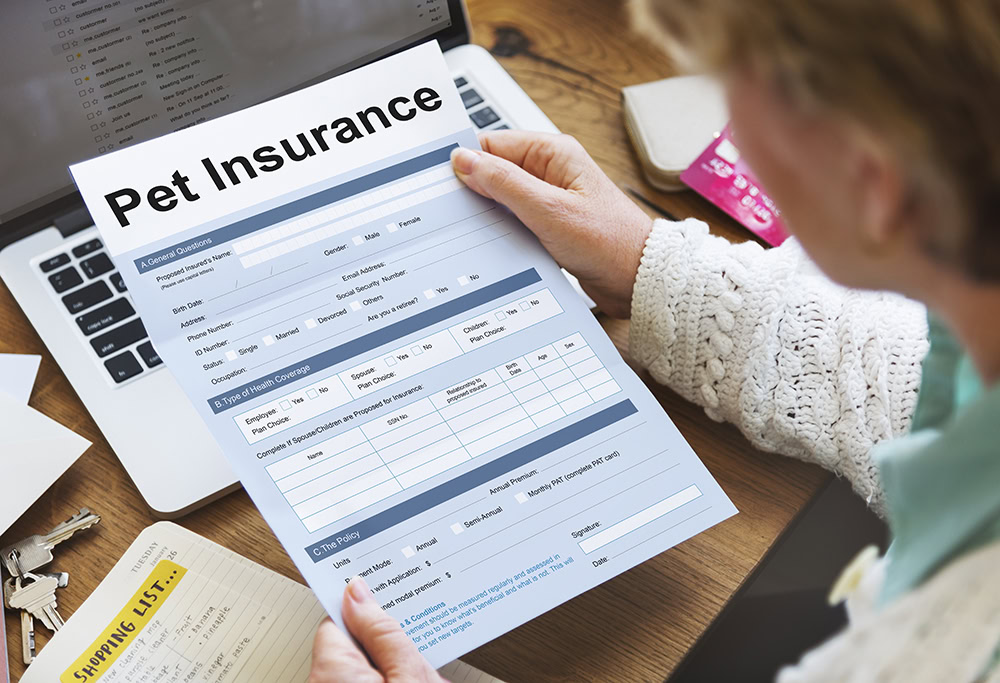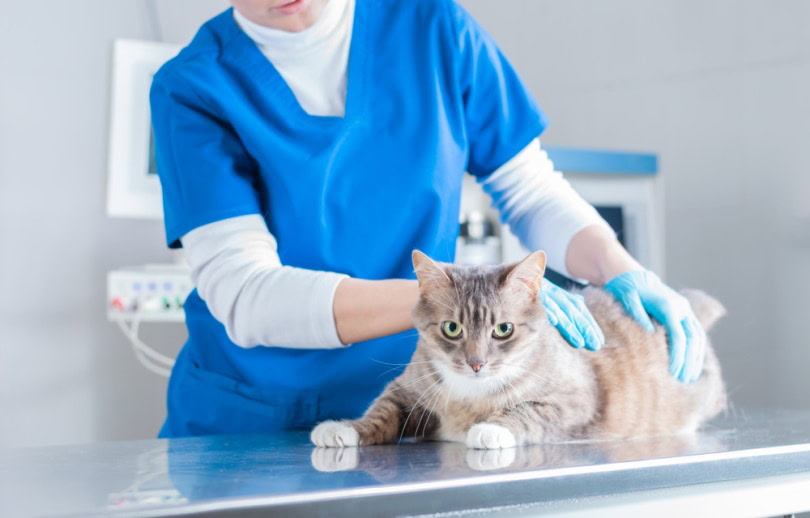VET APPROVED

The information is current and up-to-date in accordance with the latest veterinarian research.
Learn more »Click to Skip Ahead
As a pet owner, you will face numerous issues, and some aren’t too pleasant. Cats can experience minor health problems that can worsen if they’re left untreated, and if you notice your cat scooting around on their butt, they may need their anal glands expressed. It’s a common problem, but how much does it cost to express your cat’s anal glands?
For a more accurate estimate of costs, depending on your cat’s particular situation, whether it be a case of preventative expression or treating an anal gland abscess, please speak to your vet.

The Importance of Expressing a Cat’s Anal Glands
Most cats do not require their anal glands expressed, while cats that are obese, suffering from chronic diarrhea or constipation, food allergies, inflammatory bowel disease, or a neurological dysfunction making it hard for them to defecate, are more prone to this health issue.1
When a cat has issues with their anal glands, it can be pretty uncomfortable for them. You might notice your cat scooting across the floor or emitting a foul odor. In early stages this can easily be treated with a procedure that is referred to as “expressing” the anal glands and in some cases it may need to be done as a regular procedure.
This is the action of squeezing the glands located near the anus of the cat to let the build-up of liquids out, done by a trained professional. Not expressing your cat’s anal glands in time in case of an issue can result in infections or further inflammation of the area or even an impaction, which can become quite serious and lead to a painful swelling around the anus. Impacted anal glands will form an abscess that will burst and produce sticky or bloody discharge.
Next, we’ll get into the cost of having your cat’s anal glands expressed, but note that this may vary greatly, not just on the geographical location and individual clinic, but also on severity. If there is no sign of infection or an impaction and anal glands are being expressed preventatively, the cost will be significantly lower than in the case of an actual health problem.

How Much Does Expressing a Cat’s Anal Glands Cost?
The cost of expressing a cat’s anal glands can vary depending on the state of the anal glands in terms of any infections or swelling, and the region where you live. For example, if you live in a bigger city, your costs will generally run higher than those who visit a veterinarian in a rural town.
The cost can increase quickly and drastically depending if the anal glands have formed an abscess that needs to be drained. In some instances, if the cat is too painful, this procedure needs to be done under an anaesthetic. The total cost will depend on the cost of this procedure, as well as a course of pain killers and antibiotics, an E-collar to prevent licking, and any necessary follow-up appointments. If the cat is in for a regular anal gland expression due to previous or recurrent issues, the cost should be less as long as there is no impaction or an abscess at present.
In severe and chronic cases of recurrent issues, or in case of cancer, your vet may recommend anal gland removal, which will be significantly more expensive, as this is a surgical procedure done under a general anesthetic, often accompanied by 24-hour hospitalisation.
Source: Pawp Several additional costs may result from this procedure. As mentioned above, they depend on the severity of the condition and the recommended and necessary treatment options. If your cat needs further investigations or treatments, regular check-ups, or even surgery, the cost will increase significantly. Another factor to consider is that some cats may need frequent visits to the vet to have their anal glands expressed. Your cat will need to be monitored regularly to see if they need routine check-ups or multiple visits to the vet to express their anal glands, if this is something they are suffering from. Most cats will never need their anal glands expressed, but this will depend on many factors. For cats with recurring anal gland problems, this could become a monthly procedure that needs to be done by a vet regularly or something they may be able to teach you how to do safely at home if it becomes frequent enough. Don’t try this at home for the first time because you can cause your cat pain or injury, as well as negatively impact your cat’s normal bathroom visits. If you have additional questions about this process or how frequently it needs to be done, you should consult a vet. Most pet insurance companies have accident and illness plans and accident-only plans. The treatments and procedures the insurance covers vary, but most policies will not reimburse you for routine anal gland expression, unless there is a health issue like an anal gland abscess or impaction. However, it’s best to review your policy or contact a representative to get more information. A few ways you can care for your cat while they wait for a vet visit or after the procedure include monitoring their behavior and keeping up with their medications. Your vet may prescribe anti-inflammatory medication or antibiotics for your cat during an anal gland infection treatment. It’s also a good idea to monitor your cat for any concerning signs, making sure their stools are normal, they are defecating without straining and have a good appetite, and aren’t licking their bottom or scooting. Sometimes, issues with the anal region can be related to their diet. A lack of fiber, as well as being obese or suffering from chronic digestive issues, can be part of the problem. Be transparent with your vet about their diet, stools, and activity levels. Something could be causing repeat visits that you might be unable to pinpoint. When you notice any odd behavior in your cat that can be related to the need to express their anal glands, the information in this article hopefully provides information about why it’s important and how it gets treated. Be prepared for additional costs while dealing with this condition, and closely monitor your cat for signs like scooting, difficulty using the litter box, frequently licking their bottom, and others. Featured Image Credit; Andy Gin, Shutterstock
Average Cost
Pet Insurance Coverage?
Expressing Anal Glands
$25-50
Unlikely
Infection
$100–$350
Yes
Expressing Under Anaesthetic
$250–$500
Yes
Antibiotics
$6–$50
Yes
Follow Up Appointments
$50–$150
Yes
Surgery for Removal
$750–$2,500
Yes
Additional Costs to Anticipate
How Often Should My Cat’s Anal Glands Be Expressed?
Does Pet Insurance Cover Expressing a Cat’s Anal Glands?

What To Do for Your Cat In Between Visits

Conclusion












